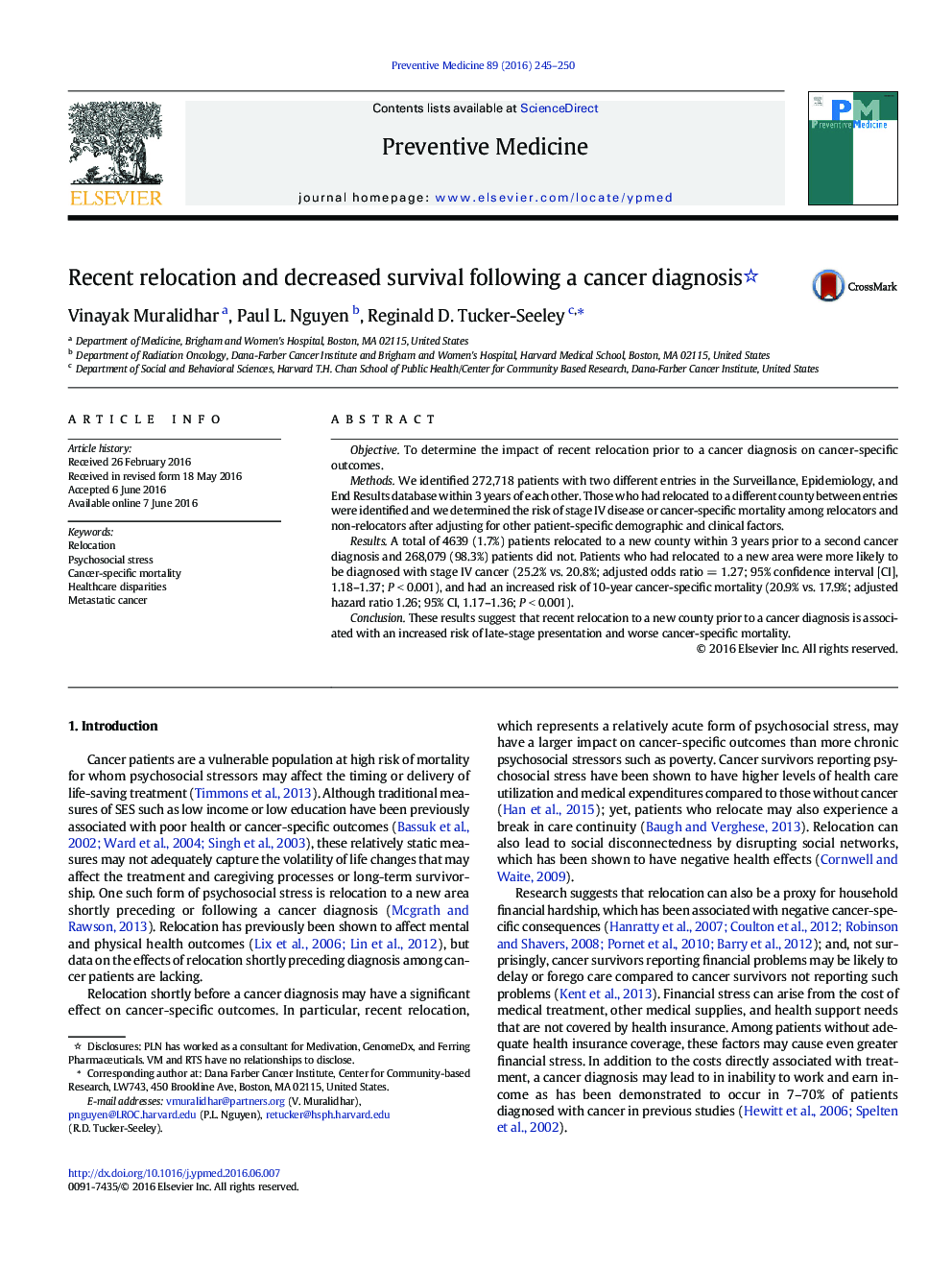| Article ID | Journal | Published Year | Pages | File Type |
|---|---|---|---|---|
| 6046226 | Preventive Medicine | 2016 | 6 Pages |
â¢Recent relocation prior to a cancer diagnosis may negatively affect outcomes.â¢Recent relocation was associated with an increased rate of advanced disease at diagnosis.â¢Recent relocators were also more likely to die from cancer than non-relocators.â¢Further work is required to determine the reasons for worse outcomes among relocators.
ObjectiveTo determine the impact of recent relocation prior to a cancer diagnosis on cancer-specific outcomes.MethodsWe identified 272,718 patients with two different entries in the Surveillance, Epidemiology, and End Results database within 3 years of each other. Those who had relocated to a different county between entries were identified and we determined the risk of stage IV disease or cancer-specific mortality among relocators and non-relocators after adjusting for other patient-specific demographic and clinical factors.ResultsA total of 4639 (1.7%) patients relocated to a new county within 3 years prior to a second cancer diagnosis and 268,079 (98.3%) patients did not. Patients who had relocated to a new area were more likely to be diagnosed with stage IV cancer (25.2% vs. 20.8%; adjusted odds ratio = 1.27; 95% confidence interval [CI], 1.18-1.37; P < 0.001), and had an increased risk of 10-year cancer-specific mortality (20.9% vs. 17.9%; adjusted hazard ratio 1.26; 95% CI, 1.17-1.36; P < 0.001).ConclusionThese results suggest that recent relocation to a new county prior to a cancer diagnosis is associated with an increased risk of late-stage presentation and worse cancer-specific mortality.
